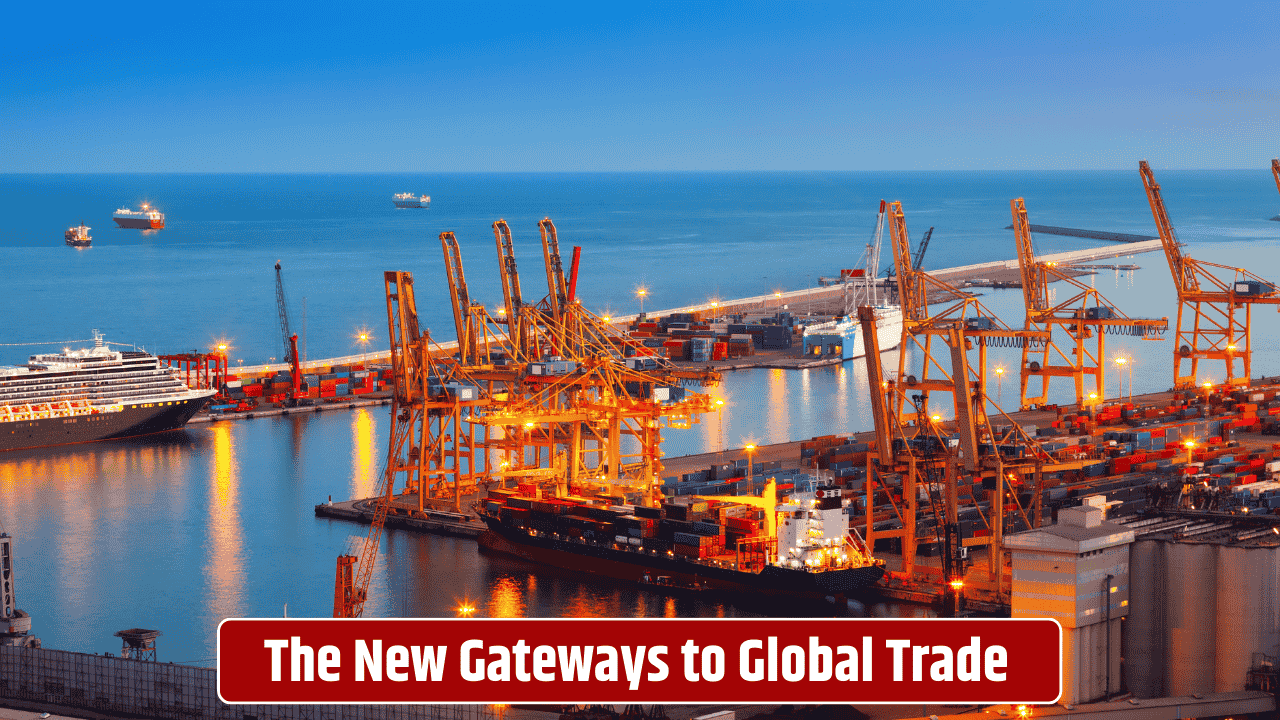It’s hard to ignore what’s quietly unfolding along Africa’s coastlines. From Lagos to Mombasa, the ports that once creaked under outdated infrastructure are now turning into high-tech gateways for the world’s cargo. Billions are being poured into dredging deeper channels, installing automated cranes, and laying down the logistics pipelines that could make Africa a central player in 21st-century trade. And if you think this is just about ships coming in and out, you’re missing the bigger story—it’s about who gets to shape the future of global commerce.
Why Africa’s Ports Suddenly Matter
For decades, Africa’s trade routes were limited by shallow harbors, bureaucratic bottlenecks, and slow-moving customs systems. Containers could sit idle for weeks, costing businesses time and money. But now, governments and private investors are seeing ports as the continent’s beating heart of growth. Projects like the Lekki Deep Sea Port in Nigeria, the Lamu Port in Kenya, and the Doraleh Multipurpose Port in Djibouti aren’t just transport hubs—they’re magnets for manufacturing zones, energy pipelines, and new jobs.
Africa sits on one of the most strategic crossroads of trade: halfway between Asia, Europe, and the Americas. Ships sailing from Shanghai to Rotterdam or from Mumbai to New York often pass right by its shores. For years, that advantage was underutilized. But the current wave of transformation is positioning African ports not just as stops, but as global connectors.
The Investment Surge
Let’s talk numbers. According to the African Development Bank, the continent needs around $130–$170 billion annually for infrastructure, with ports being a priority slice of that pie. China’s Belt and Road Initiative has already funneled billions into port construction, while European and American firms are stepping in with competing investments.
Here’s a snapshot of some key developments:
| Port Project | Country | Investment Size | Key Feature | Status |
|---|---|---|---|---|
| Lekki Deep Sea Port | Nigeria | $1.5 billion | Deepest port in West Africa | Operational |
| Lamu Port | Kenya | $3 billion+ | Part of LAPSSET corridor | Partially complete |
| Doraleh Multipurpose Port | Djibouti | $590 million | Regional logistics hub | Operational |
| Tema Port Expansion | Ghana | $1.5 billion | Boosted capacity for container cargo | Operational |
| Durban Expansion | S. Africa | $7 billion | Mega hub for southern Africa | In progress |
(Source: African Development Bank, UNCTAD)
The Ripple Effect on Economies
Ports don’t just move containers—they move economies. A modern port reduces shipping costs, cuts waiting times, and attracts industries that need reliable export-import infrastructure. Think of assembly plants for cars, food processing factories, or tech hardware assembly.
Take Ethiopia: it’s landlocked, yet its manufacturing push relies heavily on Djibouti’s port. Without that access, Ethiopia’s booming textile exports wouldn’t reach Europe or the U.S. as efficiently. Similarly, Nigeria’s Lekki port is expected to save billions annually by handling cargo locally instead of routing it through neighboring countries.
The Global Trade Angle
If you zoom out, Africa’s ports aren’t just about African growth—they’re reshaping trade lanes. With rising tensions in the Red Sea and congestion at European gateways, companies are looking at African ports as alternate supply chain nodes. Imagine a world where West African ports become the natural stopovers for Latin America–Europe trade, or where East African ports start competing with the Suez Canal route.
Even the U.S. is watching closely. Washington has been ramping up support for African trade infrastructure through programs like Prosper Africa to ensure that American firms don’t lose ground to Chinese dominance.
Challenges That Could Slow the Momentum
Of course, it’s not all smooth sailing. Corruption, regulatory red tape, and political instability remain major risks. Many African ports also face environmental hurdles—coastal erosion, rising sea levels, and pollution from heavy shipping. Plus, if local industries don’t scale alongside port growth, there’s a risk of ports becoming just transit hubs with little domestic benefit.
And then there’s the debt trap question. Some of these projects are financed with massive loans, raising concerns about long-term repayment. The case of Sri Lanka’s Hambantota Port, leased to China for 99 years after debt default, is often cited as a cautionary tale.
Looking Ahead: The Next 20 Years
The trajectory seems clear: Africa is betting on its ports to anchor its place in global trade. If investments continue, and governance keeps pace, the continent could cut logistics costs by 40% or more, making African exports far more competitive worldwide. Add in the African Continental Free Trade Area (AfCFTA), and suddenly, these ports aren’t just connecting Africa to the world—they’re connecting Africa to itself.
By 2040, experts predict African ports could handle over 2 billion tons of cargo annually, rivaling some of today’s busiest Asian ports. That would change not just trade maps, but the balance of global economic power.
FAQs
Which is the largest port in Africa?
Currently, the Port of Durban in South Africa is the largest in terms of container traffic.
What is the significance of Lekki Deep Sea Port?
It’s West Africa’s deepest port, designed to handle massive vessels that previously bypassed Nigerian waters.
How does AfCFTA impact African ports?
By reducing tariffs and barriers, AfCFTA is expected to increase intra-African trade, making ports crucial connectors for regional commerce.
Are African ports environmentally sustainable?
Not yet fully. Many face issues like coastal erosion and rising sea levels, but new designs are integrating green port strategies.
Will Africa become a major rival to Asian ports?
Not immediately. But within 15–20 years, African ports could capture a significant share of global trade, especially as supply chains diversify.









